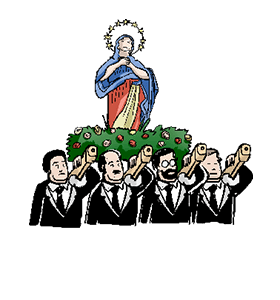Immaculate Conception
Immaculate Conception Quick Facts in the EU
| AKA Name | The Feast of the Immaculate Conception, Día de la Inmaculada Concepción |
|---|---|
| HashtagsCompiled on | #ImmaculateConception |
| Related Hashtags | #ImmaculateConception |
| 2025 Date | 8 December 2025 |
| 2026 Date | 8 December 2026 |
2025 Holidays & Dates - EU
| EU Country Common Holidays | ||
| EU Country National Holidays | ||
| Jewish Holidays |
› | ||
